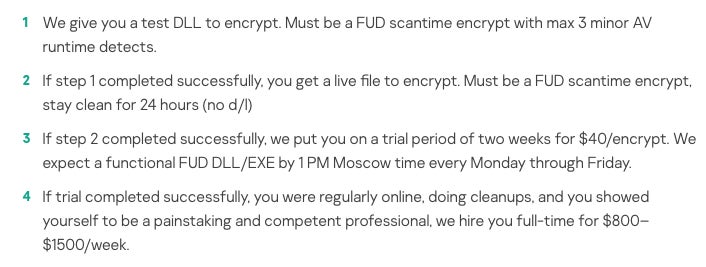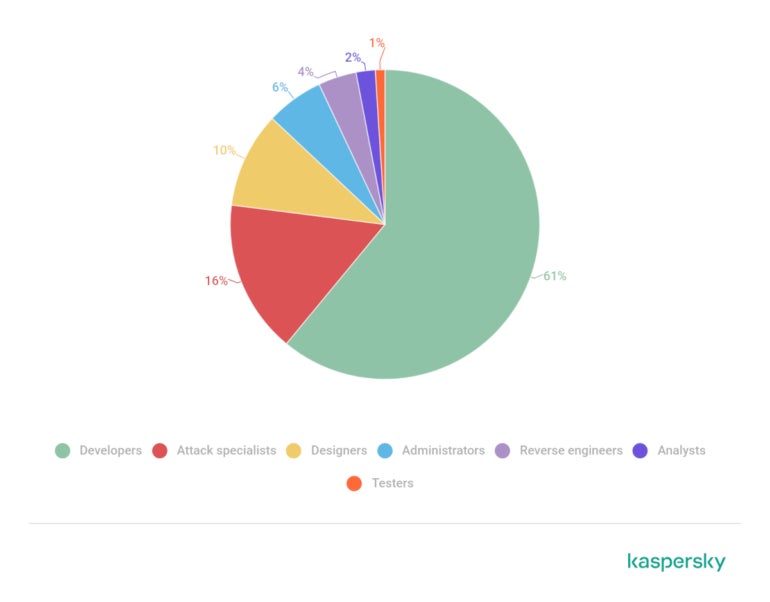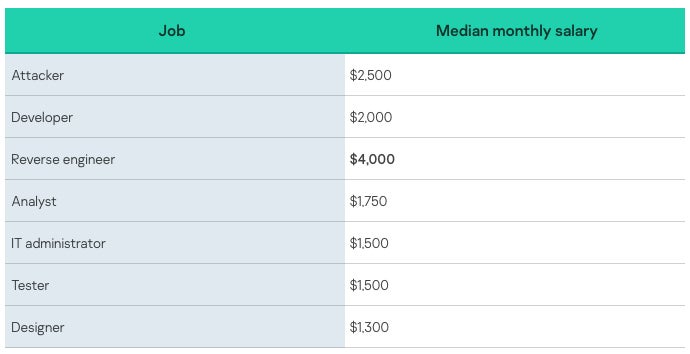
A new Kaspersky report sheds light on why some tech pros look for jobs on the dark web and how to spot suspicious and likely illegal positions from recruiters in that environment.
IT professionals are actively recruited on the dark web with job ads that are often similar to legitimate ones from regular recruitment websites. According to Kaspersky’s new research, this tech job recruiting environment is only an illusion — legal jobs are rare on the dark web.
Jump to:
The number of ads offered on the dark web as collected by Kaspersky on 155 different dark web forums from January 2020 to June 2022 is close to 200,000, with peaks during the COVID-19 pandemic in 2020.
Some reasons that might prompt someone to look for a new job on cybercriminals forums, even when considering the risks of being caught by law enforcement, are:
Sadly, some people are also unaware of the consequences of such illegal jobs and do not think they might be prosecuted.
Employers on the dark web market rely on test assignments to recruit skilled people. Some ads are more specific about the tests and allow checking the required level (Figure A); people are often paid to take these tests.
Figure A

Employers also do interviews, and a few job offers mention a probationary period. One unusual requirement is that only people without addictions will be selected.
To attract profiles, dark web recruiters mention advantages such as remote working, full-time employment or flexible schedules. Yet people could fall prey to cybercriminal organizations such as FIN7, whose managers do not hesitate to threaten their employees who did not appear at work enough or thought of leaving the criminal organization.
Developers are in the most demand in this environment, followed by attack specialists (Figure B).
Figure B

Threat actors are especially looking for these tech professionals:
The salaries for these jobs vary depending on the invested effort and the experience. Salaries are often paid via cryptocurrency. While the salary range varies from $200 to $20,000 per month, median salaries show that it is rare to find such high pay (Figure C). Kaspersky’s research reveals that contrary to popular belief, cybercriminals’ jobs are not paid significantly more than legitimate jobs.
Figure C

Some jobs ads on the dark web do look similar to legitimate postings, so users should always be careful if they decide to follow up on a posting. When you’re talking to the recruiter, it will likely be obvious that something is wrong with the offer. Here are red flags to watch with such job offers.
Read next: Mobile device security policy (TechRepublic Premium)
24World Media does not take any responsibility of the information you see on this page. The content this page contains is from independent third-party content provider. If you have any concerns regarding the content, please free to write us here: contact@24worldmedia.com